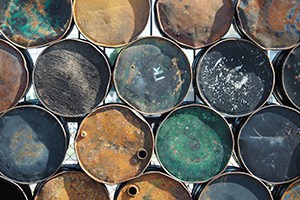 Fuel is both flammable and toxic to the environment, which is why companies need to safely store it where there’s little-to-no chance of a spill. Allowing fuel to spill or even drip in the workplace creates a dangerous scenario for nearby employees. If someone were to slip and fall on an area that’s slick with fuel, the company could be held liable for their injuries.
Fuel is both flammable and toxic to the environment, which is why companies need to safely store it where there’s little-to-no chance of a spill. Allowing fuel to spill or even drip in the workplace creates a dangerous scenario for nearby employees. If someone were to slip and fall on an area that’s slick with fuel, the company could be held liable for their injuries.
So, what’s the best way to store fuel? And what items should a fuel spill kit contain? To learn the answers to these questions and more, keep reading.
Fuel Cans
Depending on the size, scope and overall operations of your business, a couple small fuel cans may offer adequate fuel storage. You can them available for sale at most major home improvement stores for about $5-$20 a piece, allowing businesses and individual to safely store their fuel. When choosing fuel cans for your workplace, check to make sure they have a functional nozzle that’s easily to take on and off. Also, make sure the can is labeled specifically for gasoline/fuel.
Fuel Storage Drums
Of course, some companies may require something larger than a couple of fuel cans. If your company handles and/or uses a moderately large quantity of fuel, you should consider using a storage drum. These drums are designed to withstand the corrosive properties of fuel, preventing it from escaping and spilling onto the floor. A typical storage drum can hold up to 30 gallons of fuel, making them an excellent alternative to small cans.
If you plan on using fuel storage drums in your workplace, you should invest in some drip pans to safeguard against spills. Although this isn’t applicable for all drums, some have nozzles on the bottom which allow the user to extract fuel. It’s not uncommon for fuel to continue dripping from the nozzle once it’s turned off, spilling onto the floor where it creates a serious hazard for workers. Placing a drip pan underneath the nozzle, however, will catch any excess fuel dripping from the nozzle.
Fuel Spill Preparation Tips
As the old adage goes — hope for the best but prepare for the worst — holds true in the workplace. Companies should take measures to prepare themselves in the event of a fuel spill. This includes purchasing absorbent towels, socks, booms and berms. In addition, companies should also train their employees on how to use these items. Even if a spill never happens, being prepared will give you peace of mind at night.